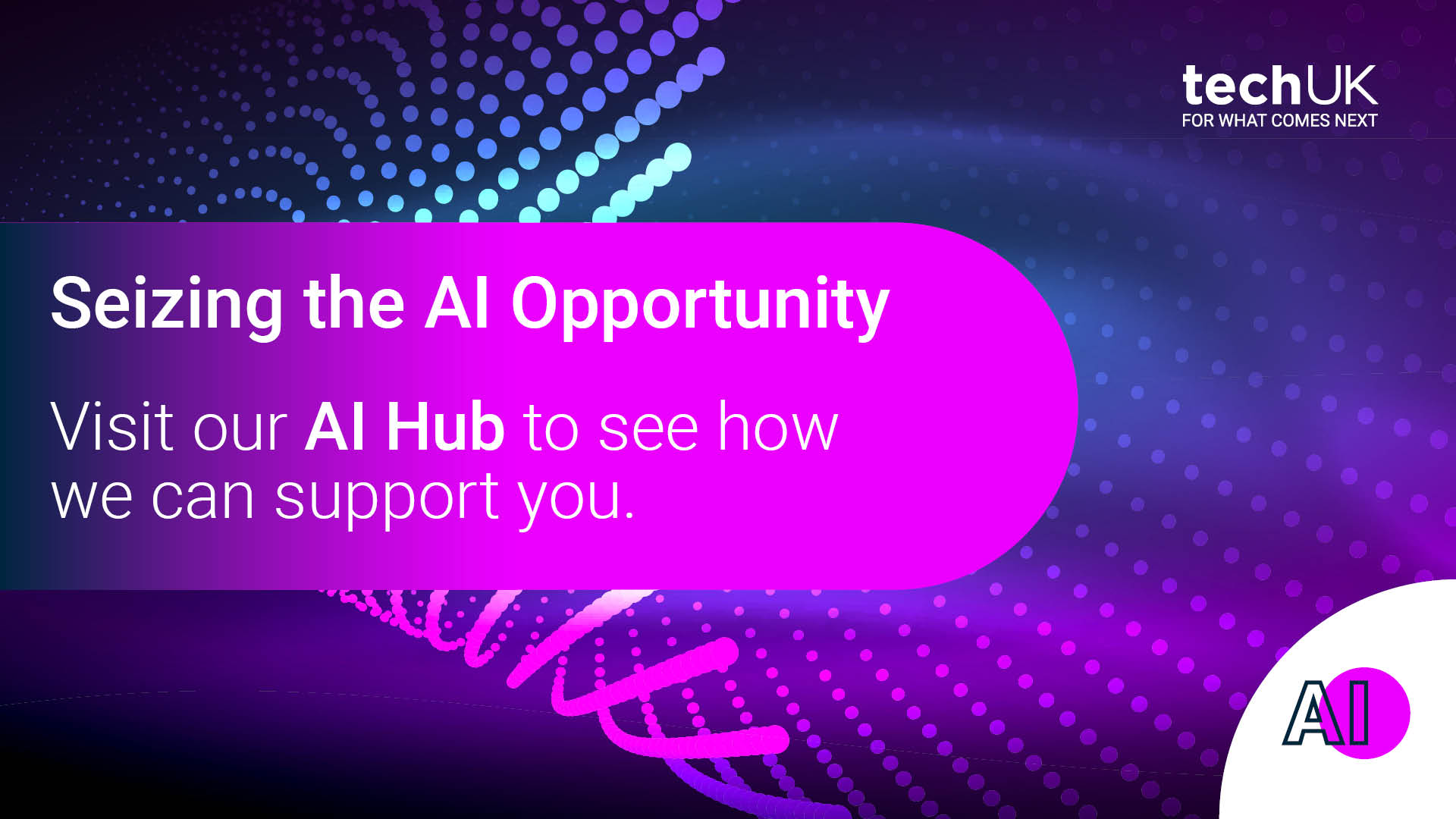How to use AI for an ethical and sustainable future?
The potential of AI is exciting, with many organisations rushing to embrace this next generation technology. Along with well documented benefits, AI can also be used to support those with additional needs, to build a fully inclusive society, but there are downsides for people and the planet which are often overlooked.
To bring true value to society and the environment, supporting the drive towards net zero, it is important to look at the overall impact of AI. We should aim to maximise AI’s positive effects while minimising any negative impact. This means making AI ethical and sustainable, reducing its harmful impacts, and enhancing its benefits, ensuring that AI is for ethics and sustainability.
Scrutiny of AI
In most cases, AI is not created to reinforce harmful biases or harm the environment, but it can sometimes do both. For example, the National Association for the Advancement of Colored People (NAACP), the civil right organisation in the United States of America, has called on lawmakers to evaluate and regulate the use of predictive policing and AI within law enforcement. While these tools aim to help law enforcement, there is mounting evidence that they can increase racial biases as a result of the black-box problem.
AI can also consume large amounts of energy – roughly four times as much as standard cloud applications. Energy use from AI is set to double in two years, matching Japan’s consumption. To reduce the negative impacts and help move towards net zero, organisations and individuals need to take responsibility to ensure that their use of AI is sustainable.
Best practice for ethical and sustainable AI
So, what does best practice look like?
From a sustainability perspective, it means that sustainable practices become embedded, such as prioritising renewable energy for data centres or using less data in the creation of AI. For example, all of Sopra Steria’s internal data centres are carbon neutral and source renewable energy. This approach to AI should be clear and present from design to deployment, reducing AI’s negative impact on society and the planet and helping to move towards net zero.
Ethically, it means eliminating the black-box problem, ensuring AI outcomes are explainable and foreseen, and the use of data reflects the principles of trust and transparency, similar to how explainable AI is being used being used in certain areas of healthcare.
To truly benefit society, AI shouldn’t just focus on driving financial value. AI should support and achieve equity for society. AI tools such as ChatGPT can boost efficiencies and cut costs, but they can also have a broader impact. For instance, the AI assistant “signbot” by Sopra Steria, IBM and IVèS enables digital sign language communication for the deaf and hard of hearing. Furthermore, Sopra Steria’s use of AI is opening up new opportunities to run efficient and sustainable precision forestry in Norway, demonstrating that AI can also deliver positive sustainable outcomes.
By using AI for ethical and sustainable causes, we can maximise its positive impact on society.
How to get the most out of AI
To get the most out of AI, we need to boost its positive effects and minimise the negatives. The larger the gap between these two, the more value that we can achieve, and the greater this gap, the more we ensure an ethical and sustainable future. It’s important to remember that sometimes the harm and negatives from AI are so severe and unacceptable, that they will stop its development and use.
Organisations need to be aware of this when making decisions on AI and act accordingly. They should always comply with the law and strive to be as ethical and sustainable as possible. To achieve this, they should make considering and recording the wider societal and environmental impact part of their AI strategy.
Being better by design
AI needs to be ethical and sustainable by design, but what does that mean? AI should be ethical and sustainable while also being for ethical and sustainable outcomes. This can be achieved by:
Governance structures within organisations need to identify and prevent unethical or unsustainable AI use. Sopra Steria has set up an AI Governance board within the organisation and have helped clients do the same. These boards review all potential uses of AI and are empowered to prioritise ethical and sustainable considerations over profit.
Employees should be educated on AI ethics and sustainability. By gaining knowledge to help reduce AI risks and create value, organisations can accelerate innovation, promote differentiation, and elevate customer trust. For example, 50% of Responsible AI leaders report better products and services as a result of their responsible AI efforts. Improved literacy includes approaches such as consequence scanning to reveal unintended impacts of AI, ensuring AI’s positive effects are maximised and negative ones are minimised. By investigating, documenting and managing these impacts, organisations can derive the most value from AI, while maintaining ethical and sustainable practices. In September 2023 Sopra Steria launched a transformation programme called rAIse focusing on Artificial Intelligence. The series is aimed at educating employees on AI, with the most recent session for employees being on AI and Sustainability. We’ve also launched the Sopra Steria Next Skills Academy for our clients where we run a session on Digital Ethics and AI, and will run a campaign for our people on AI to raise awareness across the organisation.
Organisations should have a clear mission statement relating to how they will use AI, and what value it will bring that includes ethics and sustainability. Sopra Steria has a set of group principles on AI that outlines best practices to secure the way the organisation uses AI tools, and therefore stakeholders are aware of the organisation’s intention of AI and can align their behaviour accordingly.
Sopra Steria has been positioned as an AI Technology Leader by Quadrant and therefore we prioritise ethical and sustainable growth in the use of AI.
Dive deeper with more AI insights:
If you're interested in AI adoption you can find more insights on our AI Campaign Week page, here:

Stay up to date with techUK AI Adoption work:
To help promote greater levels of responsible AI adoption, techUK is working alongside its members and key stakeholders across the AI ecosystem to demonstrate the significant benefits of this technology for both the economy and society. The best way to stay up to date with our work is to visit our AI Adoption Hub.
Call for AI Adoption case studies:
As part of techUK’s 2024 AI Campaign Week, we are launching a call for techUK member case studies, to demonstrate how organisations are tackling the barriers to AI adoption to maximise AI's potential. These case studies will be showcased to UK organisations that are also embarking on their AI adoption journeys, providing them with practical examples and insights to guide their Putting AI into Action efforts. Learn more here.
techUK - Seizing the AI Opportunity
The UK is a global leader in AI innovation, development and adoption.
AI has the potential to boost UK GDP by £550 billion by 2035, making adoption an urgent economic priority. techUK and our members are committed to working with the Government to turn the AI Opportunities Action Plan into reality. Together we can ensure the UK seizes the opportunities presented by AI technology and continues to be a world leader in AI development.
Get involved: techUK runs a busy calendar of activities including events, reports, and insights to demonstrate some of the most significant AI opportunities for the UK. Our AI Hub is where you will find details of all upcoming activity. We also send a monthly AI newsletter which you can subscribe to here.
Upcoming AI Events
Latest news and insights
Subscribe to our AI newsletter
AI and Data Analytics updates
Sign-up to our monthly newsletter to get the latest updates and opportunities from our AI and Data Analytics Programme straight to your inbox.
Contact the team
Visit our AI Hub - the home of all our AI content:

Enquire about membership:










